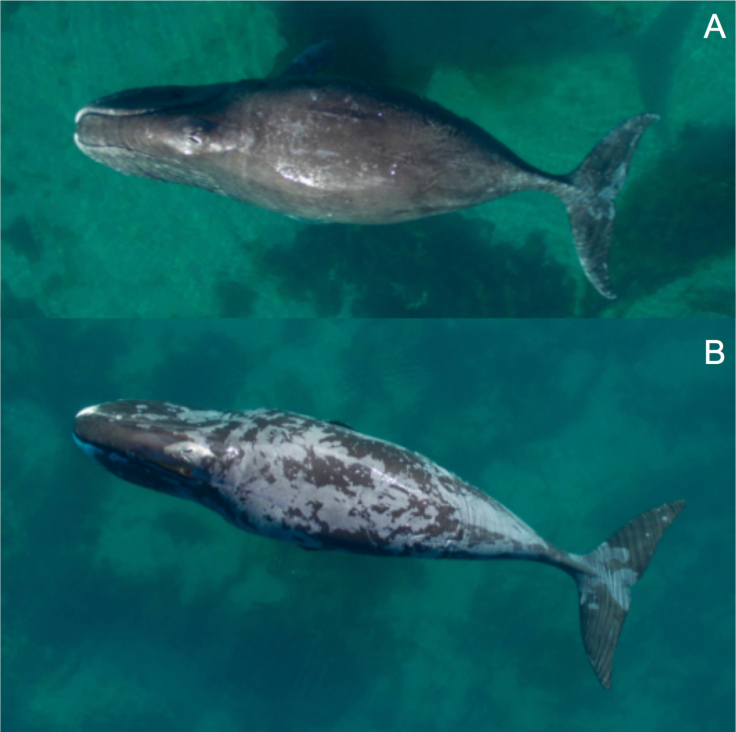Ocean spa: Watch bowhead whales use giant boulders to exfoliate
The exact reason behind the "day spa" is still unclear.

A new study has found that bowhead whales shed dead skin by scratching themselves against rocks at the bottom of the ocean.
Previously it was thought that this exfoliation ritual, also known as molting, was limited to belugas, dolphins, and killer whales, but researcher Sarah Fortune, a graduate student, and her teammates found a group of bowhead whales scratching themselves against boulders in Canada's Cumberland Sound.
Back in the summer of 2014, the group went to the north-eastern coast to note how climate change affected the feeding behaviour of these massive, 50-60ft long animals. While conducting the study, they saw a small group of whales with large patches of loose, dead skin all over their bodies.
This prompted the group to return to the same spot two years later to check if the whales were exfoliating.
Fortune and her team used a drone to see what was happening deep inside the bay and found as many as 81 bowheads with similar patches. Many were also seen taking turns and rubbing their chins, backs, and sides against the boulders, according to a report in The Verge.
"It's like a day spa for the whales," Fortune told Hakai. "Think of it as using a pumice stone to get a callus off your foot, using the physical environment to help exfoliate the skin."
While the exact reason behind the "day spa" is still unclear, the group believes that the creatures might be exfoliating to get rid of harmful parasites, insects, or sun-damaged skin, something that could prove harmful for the health of these creatures, which live for about 200 years.
As the report notes, most creatures molt throughout the year, but belugas and bowhead whales molt once in a year as they move towards warm waters, which may facilitate the process by boosting metabolism in them.
Fortune also believes that her study could bolster the search for other regions where these whales might exfoliate. This would help keep human activity away from spoiling their spa day.
The study is published in the journal PLOS One.





















